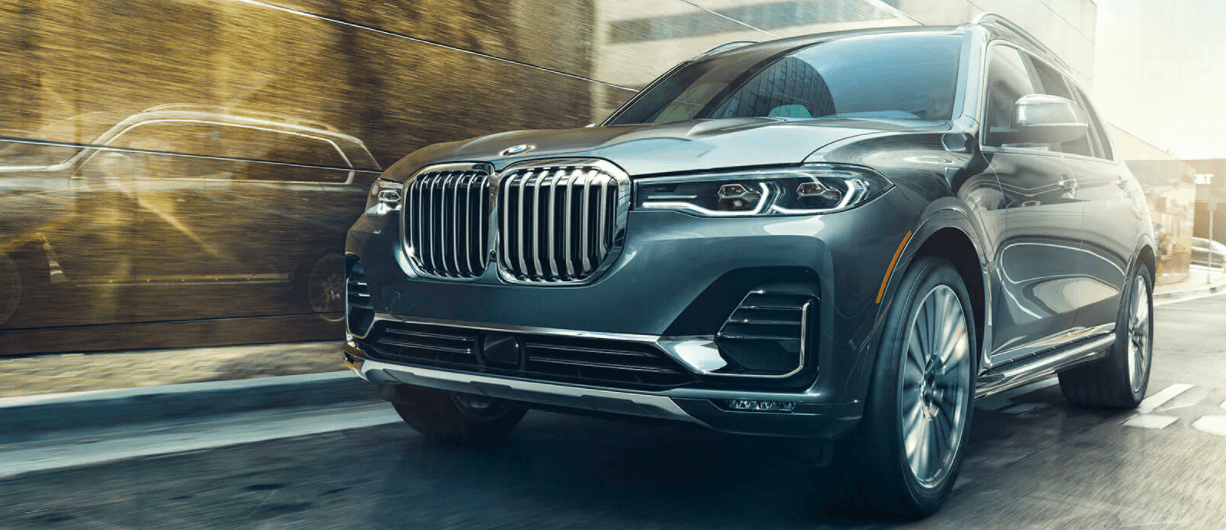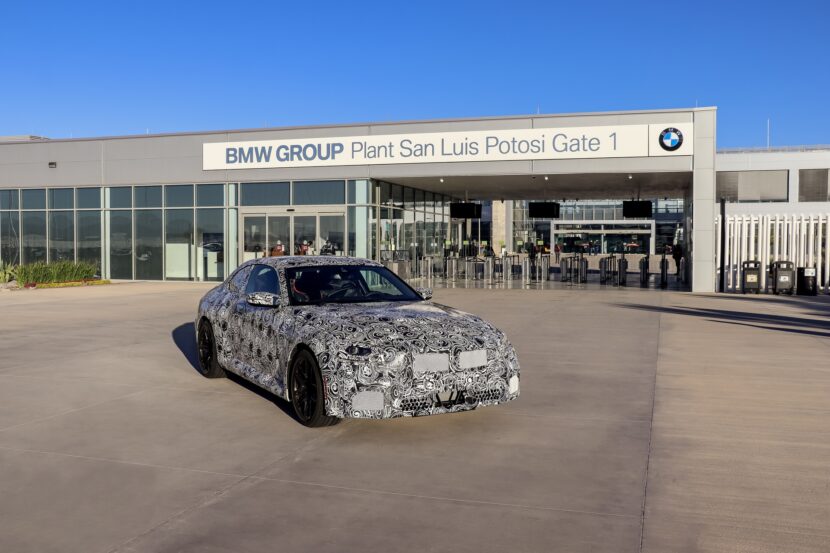BMW cars are manufactured in several countries. Germany is the main hub, with key plants in Munich, Dingolfing, and Regensburg.
BMW’s production network extends across the globe. Its German roots are strong, with the company’s headquarters in Munich. This city symbolizes BMW’s rich history and innovation. Beyond Germany, BMW has major plants in the United States, China, and South Africa.
Each location plays a vital role in meeting global demand. The Spartanburg plant in the U. S. Focuses on SUV models. In China, BMW partners with local companies to cater to the Asian market. South Africa’s Rosslyn plant produces cars for the African and other markets. Each plant reflects BMW’s commitment to quality and efficiency. Understanding where BMW is made highlights the brand’s global reach and influence.

Credit: www.bmwofwarwick.com
Introduction To Bmw Manufacturing
BMW, a renowned name in the automotive industry, has a fascinating manufacturing story. From humble beginnings to a global presence, its production process is worth exploring. Understanding where BMW is made offers insights into its quality and innovation.
Brief History
The journey began in 1916 in Munich, Germany. BMW initially focused on aircraft engines, which influenced its engineering excellence. By 1928, BMW ventured into automobile production. This marked the start of its legacy in car manufacturing. The iconic BMW 3/15 was its first car model. Success followed quickly, expanding its footprint in the automotive world.
Global Reach
BMW’s manufacturing extends beyond Germany today. Its plants in the USA, China, and South Africa exemplify its global reach. Each facility contributes to BMW’s diverse vehicle lineup. The Spartanburg plant in the USA is known for producing SUVs. In China, BMW’s joint venture caters to the local market. South Africa plays a significant role in supplying vehicles worldwide. This global network ensures BMW’s presence in key markets.
Germany: The Heart Of Bmw Production
Germany stands as the core of BMW’s manufacturing excellence. The renowned automaker crafts its vehicles in various German cities, including Munich and Leipzig. This commitment to precision and quality is what makes Germany the heart of BMW production.
Germany is more than just a location for BMW; it’s the beating heart of its production. This country hosts some of the most advanced automotive facilities in the world, where precision and innovation come together to create iconic vehicles. If you own a BMW or dream of having one, you’ll find it fascinating to learn how Germany shapes the BMW you love.Munich Headquarters
BMW’s headquarters in Munich is not just an office—it’s a hub of innovation and history. Walking through the halls, you feel the legacy of decades of automotive excellence. The “Four-Cylinder” building is a landmark, symbolizing BMW’s commitment to pushing the boundaries of engineering. Here, decisions are made that influence BMW’s global strategy. It’s the command center for research, development, and marketing. If you visit, don’t miss the BMW Museum, which offers a journey through the brand’s storied past.Iconic Plants
In Germany, BMW’s plants are more than factories; they are icons of efficiency and craftsmanship. The Dingolfing plant is one of the largest, producing a variety of BMW models, including the BMW 5 Series and 7 Series. Imagine the precision involved in assembling luxury vehicles with such attention to detail. Leipzig is another key site, known for its sustainable practices. It produces the BMW i Series, emphasizing eco-friendly manufacturing. This plant is a testament to BMW’s future-forward approach, balancing performance with environmental responsibility. Have you ever thought about the intricate journey your BMW takes before it reaches you? From the assembly lines to the test tracks, each step in Germany ensures that your car is ready to deliver an unparalleled driving experience.European Production Sites
BMW is a brand synonymous with precision engineering and luxury. Many people wonder where these iconic cars are manufactured. While BMW has a global presence, its roots are deeply entrenched in European soil. The company’s European production sites are a testament to its commitment to quality and innovation. Let’s explore some of these key locations.
Austria Facilities
Did you know that some of BMW’s engines are crafted in Austria? The Steyr engine plant is one of BMW’s most important production sites. It specializes in diesel engines, contributing significantly to BMW’s reputation for efficiency and performance.
Imagine driving a BMW and knowing the heart of your vehicle was meticulously assembled in Austria. This facility emphasizes quality over quantity, ensuring each engine meets BMW’s high standards. Next time you press the accelerator, think about the Austrian craftsmanship under the hood.
Uk Operations
In the UK, BMW’s presence is felt through the iconic MINI brand. The Oxford plant is where these distinctive cars come to life. Walking through this plant is like stepping into a world where tradition meets modern technology.
The UK operations are more than just about manufacturing cars; they’re about creating experiences. Have you ever considered the blend of British design and German engineering? It’s a unique combination that sets MINI apart and makes driving them such a joy.
Think about the global journey of a BMW car. It begins in places like Austria and the UK, each location contributing its unique touch. This diversity in production is what makes each BMW vehicle special. How does knowing this change the way you view your own car?
American Expansion
BMW’s American expansion has transformed its global manufacturing landscape. The decision to establish production in the United States was pivotal. It brought European craftsmanship to American soil. This move aimed to cater to growing demand in the U.S. market. Let’s delve into BMW’s presence in America, focusing on its South Carolina plant and market influence.
South Carolina Plant
BMW’s South Carolina plant is a cornerstone of its American operations. Located in Spartanburg, this facility began production in 1994. It quickly became the largest BMW plant worldwide. The plant specializes in producing SUVs for global markets. It employs thousands, contributing to local economic growth. Spartanburg is crucial for BMW’s global supply chain.
Market Influence
BMW’s expansion in America significantly influences the automotive market. The Spartanburg plant produces popular models, including the X series. These models cater to the preferences of American consumers. This presence strengthens BMW’s brand visibility in the U.S. It also enhances competition among luxury car manufacturers. BMW’s American production supports strategic market positioning.
Asian Manufacturing
BMW cars are made in several places, including Asia. In particular, BMW has a manufacturing plant in Shenyang, China. This plant plays a key role in the production of BMW vehicles for Asian markets.
### Asian Manufacturing BMW’s expansion into Asian manufacturing is a testament to its strategic vision and global reach. By extending its production facilities into Asia, BMW taps into the vast potential of emerging markets while maintaining its high standards of quality and innovation. This move not only boosts production efficiency but also brings BMW closer to millions of potential customers in the region.China Collaboration
BMW’s collaboration in China has been a game-changer. The joint venture with Brilliance Auto Group resulted in the establishment of BMW Brilliance Automotive (BBA). This partnership underscores BMW’s commitment to growing its presence in the world’s largest automotive market. In Shenyang, the production facilities are a marvel of modern engineering. They blend advanced technology with sustainable practices. The result? A factory capable of producing over 450,000 units annually, including popular models like the BMW 3 Series and 5 Series. Have you ever thought about the importance of local partnerships in global business? BMW’s collaboration in China illustrates how strategic alliances can drive success. By working closely with local partners, BMW gains invaluable insights into the local market and consumer preferences.India Ventures
BMW’s ventures in India reflect a tailored approach to a diverse market. The manufacturing plant in Chennai is pivotal to BMW’s strategy in South Asia. It produces a range of models, including the BMW X1 and BMW 3 Series. The Chennai plant is not just a production facility. It is a symbol of BMW’s commitment to India and its consumers. By assembling cars locally, BMW can offer competitive pricing and faster delivery times. Consider the unique challenges of the Indian market. High import duties can make foreign cars expensive. By manufacturing locally, BMW circumvents these challenges, making its vehicles more accessible to Indian buyers. Have you ever wondered about the impact of local production on a brand’s reputation? For BMW, producing cars in India has enhanced its image as a responsive and customer-focused brand. By understanding and adapting to local needs, BMW strengthens its foothold in the competitive automotive landscape.
Credit: www.bmwblog.com
Innovations In Production
BMW is renowned for its innovative production techniques. Their commitment to quality and efficiency remains unmatched. They constantly integrate new technologies and practices in their manufacturing process. This ensures superior vehicles that meet modern demands. Let’s delve into some of these remarkable innovations.
Sustainable Practices
BMW emphasizes sustainability in every step of production. They use renewable energy sources in their factories. Recycling is a key component of their manufacturing process. This reduces waste significantly. Water conservation efforts are also a priority. BMW aims to minimize its environmental footprint.
Tech Advancements
Technology plays a pivotal role in BMW’s production. Robots assist in assembling parts with precision. Advanced software monitors each step for accuracy. This ensures consistent quality across all models. Automation also speeds up production times. This allows BMW to meet global demand efficiently.
Bmw’s Global Strategy
BMW stands as a symbol of innovation and luxury in the automotive world. This German giant has expanded its reach beyond borders. Its global strategy ensures the brand meets diverse market needs. BMW’s production facilities span across the globe. This helps the company cater to various customer preferences. It also allows BMW to maintain its competitive edge.
Market Adaptation
BMW understands the importance of market adaptation. Different regions have unique demands and preferences. In Europe, the focus is on efficiency and compact cars. In the United States, there is a demand for larger vehicles. BMW adapts its models to fit these regional preferences. This strategy ensures customer satisfaction worldwide.
The company also tailors its marketing strategies. Localized campaigns connect better with regional audiences. This approach strengthens BMW’s brand presence in every market. It reflects the company’s understanding of global diversity. As a result, BMW maintains its status as a top luxury brand.
Future Plans
BMW looks towards a future driven by innovation. The company invests in electric and autonomous vehicles. These technologies are the future of the automotive industry. BMW aims to lead in these areas with cutting-edge designs.
Expansion of production facilities is on the horizon. New plants will increase production capacity and efficiency. This aligns with BMW’s vision for a sustainable future. The company plans to reduce its carbon footprint. A commitment to sustainability is evident in every strategy.
BMW’s future plans emphasize global collaboration. By working with international partners, BMW strengthens its global presence. This approach ensures the brand remains a leader in the automotive world.

Credit: www.bmwoftenafly.com
Impact On Local Economies
BMW, made in Germany, impacts local economies significantly. Its factories create jobs and boost regional development, fostering economic growth in surrounding areas. Production facilities in other countries also contribute to local economies, supporting local suppliers and creating employment opportunities.
When you think of BMW, you might picture sleek cars cruising down highways. But have you ever wondered about the broader impact of BMW on local economies? As a global automaker, BMW’s presence in various locations has significant economic implications. From job creation to boosting local growth, the ripple effects are profound. Let’s dive into how BMW’s manufacturing operations affect the communities around them.Job Creation
BMW’s factories create thousands of jobs worldwide. In places like Spartanburg, South Carolina, BMW’s plant employs over 11,000 people. This not only provides stable employment but also enhances the community’s skill set. Jobs generated by BMW extend beyond the factory floor. Local businesses thrive as they supply parts and services to BMW. This interconnectedness fosters a robust job market in the surrounding area. Have you ever thought about the indirect employment opportunities? Consider how local shops and restaurants benefit from the increased foot traffic due to BMW employees. The boost in consumer spending invigorates the local economy.Economic Growth
BMW’s presence in a region often leads to significant economic growth. In Germany, for example, the company’s headquarters in Munich contributes greatly to the local GDP. This growth isn’t limited to direct sales; it includes investments in infrastructure and technology. The ripple effect of BMW’s economic contributions is substantial. By investing in local facilities and innovation, BMW helps elevate the region’s economic standing. Local governments may also benefit from increased tax revenues, which can be reinvested into public services. Have you considered the long-term impact? As BMW continues to innovate and expand, the economic benefits can extend for decades. This growth can transform local communities and provide a model for sustainable development. In your community, what industries have had a similar impact? Understanding how large companies like BMW influence local economies can offer valuable insights into regional development.Frequently Asked Questions
Which Bmw Is Built In The Usa?
The BMW X5, X6, and X7 are built in the USA. These models are manufactured at BMW’s Spartanburg plant in South Carolina. The facility focuses on producing SUVs for the global market.
Is Bmw Made By Germany?
Yes, BMW is a German automobile manufacturer. Founded in 1916, BMW’s headquarters are located in Munich, Germany. The brand is renowned for its luxury vehicles and innovative engineering. BMW cars are primarily produced in Germany, ensuring high standards of quality and precision.
Where Are Bmws Actually Made?
BMWs are primarily made in Germany, with major plants in Munich, Dingolfing, and Regensburg. They also have manufacturing facilities in the United States, China, South Africa, and other countries. Each location specializes in different models and components, ensuring global production efficiency and quality.
Who Currently Owns Bmw?
BMW is owned by the Quandt family and public shareholders. The Quandt family holds a significant stake. Public shareholders own the remaining shares. BMW is a renowned German car manufacturer known for luxury vehicles. The company was founded in 1916 and is headquartered in Munich, Germany.
Where Are Bmw Cars Manufactured?
BMW cars are manufactured in Germany, the U. S. , China, and several other countries worldwide.
Conclusion
BMW creates cars with precision and care worldwide. Germany stands as BMW’s heart, hosting its most famous factories. Other key locations include the United States and China. Each factory follows strict quality standards. This ensures every BMW meets the high expectations of drivers.
Global production supports BMW’s innovation and success. A blend of tradition and modernity drives BMW forward. These cars reflect a commitment to quality and excellence. Whether you drive a BMW made in Germany or elsewhere, the experience remains exceptional. Every journey offers the thrill and comfort BMW promises.

















